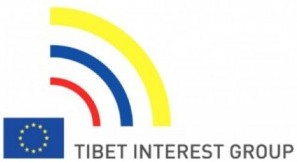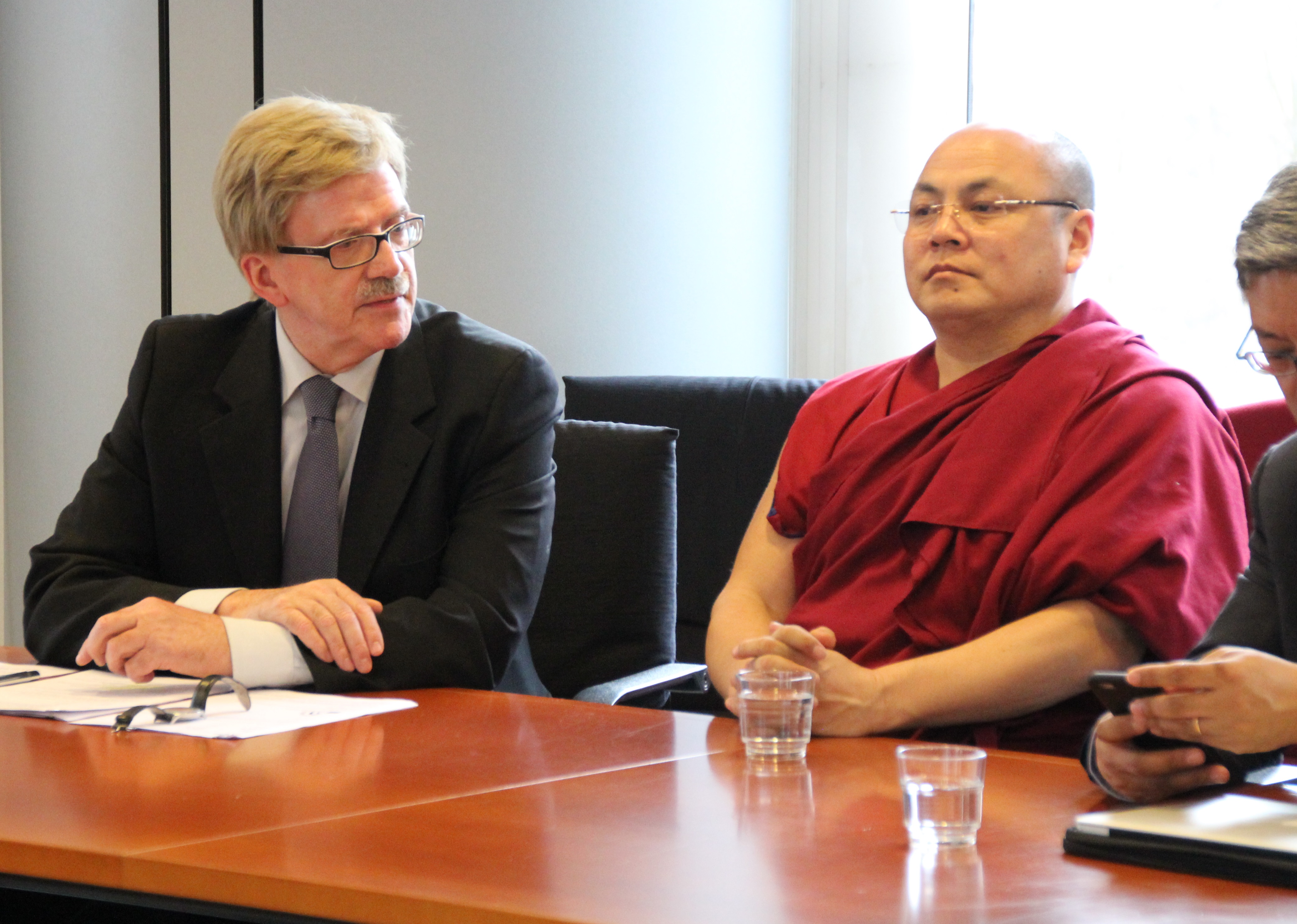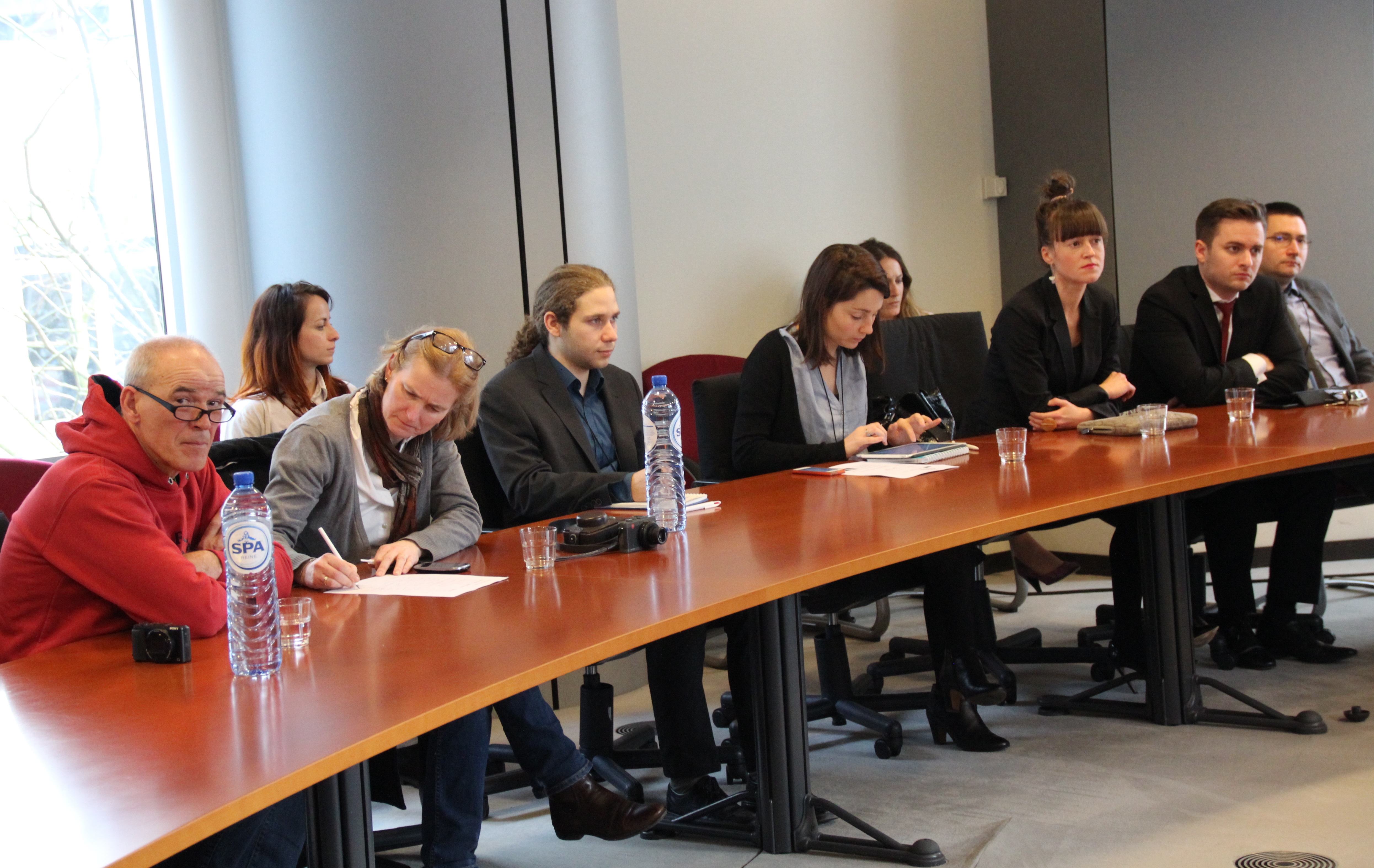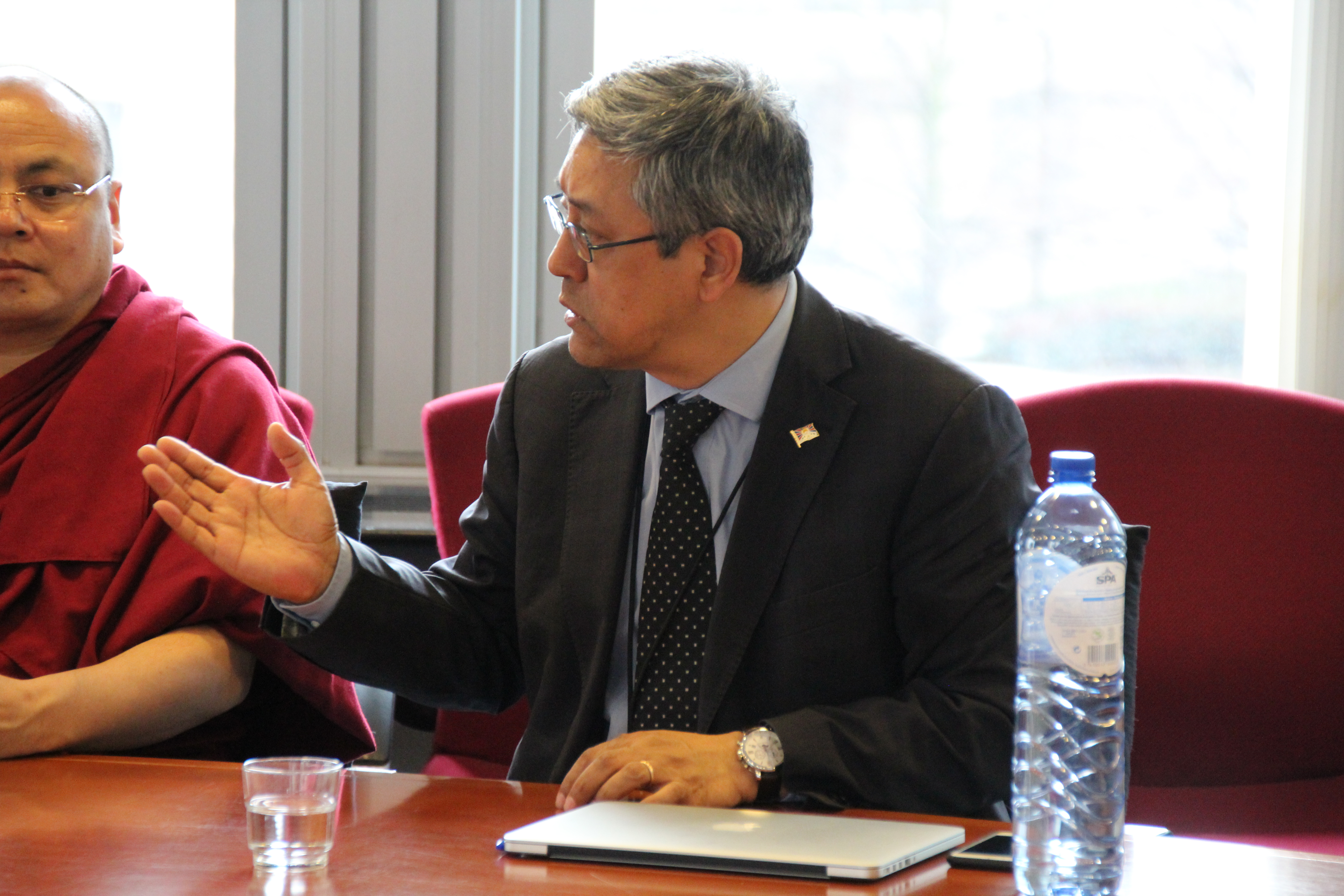The regular monthly meeting of the TIG was held on Tuesday 15th March at 16.30h in the European Parliament. We welcomed Golog Jigme, former high profile political prisoner and human rights defender who was imprisoned three times and tortured by the Chinese authorities for making the documentary “Leaving Fear Behind”. He shared first-hand account of his experience in a Chinese prison and his way to freedom.
Thomas Mann MEP
- Informed about the upcoming journey to Dharamsala, India, to observe the Tibetan Elections.
- Observation at the local polling stations.
- On-site visits of different organisations and NGOs.
- Presenting the TIG work in Brussels.
- He underlined the importance of continuing the support for Tibetans.
Tseten Samdup (Representative of His Holiness the Dalai Lama to the EU)
- There are over 40 polling stations worldwide.
- The election campaigns have been very vibrant.
- European votes will be counted in Geneva, London and Brussels on 20th, 24th and 26th of March respectively. However, in Nepal, India and Bhutan, the votes will be counted at a later date because it takes more time to centralize the ballots from different towns and villages.
Golog Jigme (Tibetan monk and Human Rights Activist)
- Producer of the documentary “Leaving Fear Behind” in 2007-2008.
- The documentary shows the deficit of democracy in China and comments of Tibetan people on the Olympic Games and on His Holiness the Dalai Lama.
- When the documentary was finished, Chinese authorities arrested him three times (2008/2009/2012).
- Over 60 armed policemen and 300 military personnel stormed his house and locked down his entire village and arrested him on gun-point.
- During the arrest they used disproportionate violence and hit him with gun butt.
- He was detained for seven months.
- In prison he was tortured for 51 days. He went through different methods of torture like the torture chair (Lahouten in Chinese and the literal translation is “Tiger Stage”) or electric shocks.
- The torturers wanted to get names of the individuals who were interviewed in the documentary and those who took part in the 2008 protest.
- Golog Jigme refused to cooperate and instead remained silent to protect the Tibetans from getting arrested and tortured.
- He was imprisoned for the second time in 2009.
- When he was arrested for the third time in 2012, the Chinese guards told him that they would take him for a medial examination though he was fit. Firmly the doctors emphasized that he must follow their prescription exactly and take pills or injections.
- Golog Jigme got very suspicious and escaped from the detention centre in 2012 and hid in the mountains for 20 months.
- He fled to Dharamsala, India, in May 2014.
- Since then he has been travelling around the world to highlight the suffering of the Tibetan people through his personal experience and the alarming regularity with which human rights are disregarded and violated in China.
Golog Jigme’s main urges are:
- Call on China to impose a moratorium on the settlement of Tibetan pastoral nomads, which runs counter to scientific evidence pointing to the need for livestock mobility in ensuring the health of the grasslands and mitigating negative warming impacts on the environment of the Tibetan plateau.
- Urgethe Chinese authorities to put an end to the annual closure of the Tibet Autonomous Region around 10th March and to allow foreigners, including independent experts, diplomats, parliamentarians and journalists, free access to Tibet at any time so that they can see the situation in Tibet for themselves.
- Call on China to improve the living conditions of the over 2,000 Tibetan political prisoners currently in Chinese prisons, and toimmediately release all those Tibetans who have been detained and sentenced for peaceful expression of views or non-violent dissent; Express concerns about the new counter-terrorism law, which in conflating ‘terrorism’ with an undefined ‘extremism’ linked to religion, gives an even larger scope for the penalisation of almost any peaceful expression of Tibetan identity, acts of non-violent dissent, or criticism of ethnic or religious policies.
- Access to medical treatment for the over 2000 documented Tibetan political prisoners languishing currently in Chinese prisons.
Screening of “Leaving fear behind”



